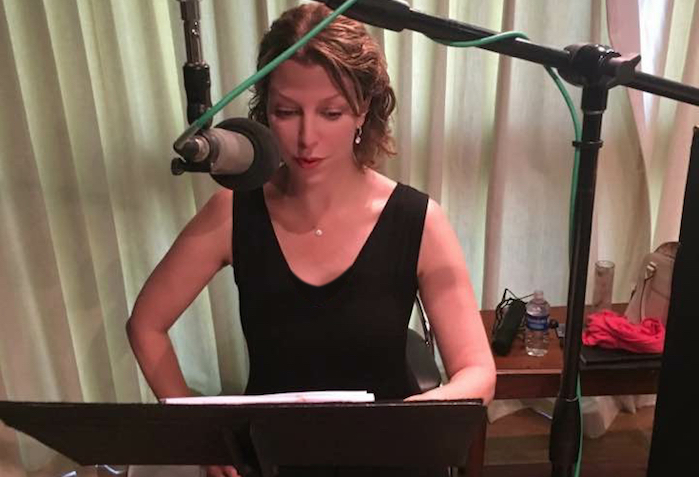
There have always been stories that Frontline wants to tell that, for one reason or another, didn’t work for film. In some cases, these stories are particularly sensitive, or involve people under 18. There is, for instance, the girl who was 14 when her father took her from their home in Idaho to Missouri to marry the 24-year-old who’d raped and impregnated her. After some time had passed, she wanted to tell her story. It was a uniquely intimate and personal topic for Frontline to cover, and a film didn’t seem like the right fit.
“We’d been thinking about longform audio documentary for years before the podcast form emerged,” said Raney Aronson-Rath, Frontline’s executive producer. “Since podcasts took off, it’s been one of our biggest priorities: What types of stories could we tell that would resonate a lot more in sound?”Tuesday marks the launch of Frontline’s first podcast, The Frontline Dispatch. In its first season, the biweekly podcast will focus on stories like the child marriage one mentioned above (that’s the first episode, dropping Sept. 14), second chances for juveniles with life sentences, and a community divided over oil drilling and earthquakes. The show is available wherever podcasts are found and distributed by PRX. (The podcast is supported by a gift from the Abrams Foundation; Amy Abrams is a member of the Nieman Foundation’s advisory board.) Jay Allison, creator of The Moth Radio Hour and a public radio legend, is senior editor and creative director.
It wasn’t until the team began working with Allison that Aronson-Rath says she fully realized the differences between audio and documentary film. “When you’re making a big documentary film, it’s really a presentation,” she said. “You’re sitting and watching something across the room from you. Or, even if it’s on mobile, it’s still not in you — you’re holding something in your hand and watching it. With audio, especially with a podcast as opposed to other forms of audio, you’re talking personally to someone, you’re putting earbuds in your ears.”
The team also had to come to terms with other limits of audio storytelling. Frontline documentaries often include multiple experts, speaking one after another, and many characters. “In audio, you have to strip it down to its essential characters,” Aronson-Rath said. “You can’t toggle between multiple people all the time. You can’t talk to people all at once. You have to let the listener know who’s speaking, and then remind them…It doesn’t sound like rocket science. But those two takeaways helped me take the leap into authentic audio storytelling. Film and audio are truly different forms and I had to understand how different they are.”
At first, it had seemed as if Frontline’s audio producers would be able to collaborate with its filmmakers in the field — that if Frontline was making a film in Iraq, for instance, they’d be able to get a podcast out of it as well. The team experimented with this early in the year and found that it didn’t work. “Unless you have a real audio team on the ground who’s doing authentic audio gathering, it would just play second fiddle to the films. We killed a number of stories early on as we were starting to experiment, for that reason,” Aronson-Rath said. “If we were more willing to have the podcast be a sort of addendum to the broadcast, we could have gone that way. But we want these to stand on their own as true audio experiences.”
She recalled the idea in the digital world, popular “a few years ago,” that you should hire one person who was able to do everything — writing, audio, video, and so on. “Well, what we found is that at the level at which you want to be publishing, you need really talented people who are really well-trained” in one area. The idea of audio producers collaborating with filmmakers remains “aspirational,” she said, and something that Frontline might be able to accomplish in the future.
As with its other projects on other platforms (its Facebook films, for instance), Frontline hopes to find podcast listeners where they already are. The podcast may be their first exposure to Frontline’s brand, and the goal is that they will then find its reporting on other platforms. The Frontline Dispatch is also an opportunity for Frontline to work with new, younger reporters and storytellers, like Anjali Tsui, the Frontline/Columbia Journalism School Fellow who spent over a year reporting the child marriage story.
Moving forward, Aronson-Rath has other ideas for the podcast — a serialized story, for instance — and mentioned This American Life, Radiolab, and the Center for Investigative Reporting’s Reveal as shows that inspire her. “I listen to Radiolab every single time it has a new show,” she said. “There’s a nimbleness in the way they tell stories. I would love for us to be able to apply that to investigative journalism, which is usually pretty dense.”